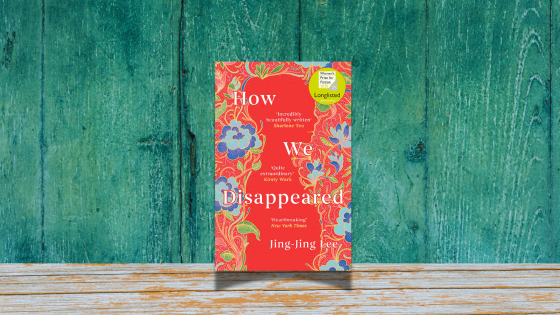When one thinks of World War II, there is a certain imagery that comes instantly to mind. Like the deathly concentration camps, Dunkirk, D-Day, Pearl Harbor, Hiroshima-Nagasaki, the skeletal remains of European cities, etc. Western cinema and Hollywood have done its bit to aggrandize the heroics of the allies and to create a list of top recall in the world’s mind.
However, in the stories of grand battles or unimaginable horrors, it is easy to forget about the lives of the people who just endured the war. Also, when it comes to the global east, the horrors and heroics don’t make it mainstream on this side of the hemisphere. Japan’s imperial control was vast and cruel over many of the southern Asian countries. Large populations of these countries whose lives were so far removed from the European war found themselves under imperialist rule overnight. Abandoned by their colonist overlords who pivoted their forces towards the European efforts and didn’t care about protecting fate of the native population.
In How We Disappeared, Jing Jing Lee brings to life the destructive effects of Japanese occupation to the people of Singapore in World War II.
The Premise
We start the novel with Wang Di, a grieving widow in present day Singapore, grappling with the aftermath of her husband’s death. Her story goes between the past and present, and we learn that Wang Di was born in rural Singapore to a poor family during the British Occupation. Her childhood was full of hardship and burden that came with being a female child in a patriarchal society. Her life changed forever when the Japanese warplanes flew over the skies and war left the city and came home to their village. It’s through Wang Di’s eyes we see most of the daily sufferings of the average Singapore citizen. But Wang Di was not fortunate enough to survive the war as a passive bystander. She is ripped from her home and taken to an unknown place to serve as a sex slave to the Japanese soldiers. After suffering years of sexual, physical and emotional trauma, she survives the war, but lives with the shame forever.
On the other side of the narrative is teenage Kevin, who is dealing with the grief of losing his grandmother. Kevin and his story represent the modern Singapore , middle class working parents living in one of the thousands of apartments in the city. Kevin’s life is that of an average introverted teenager — struggling with homework, being bullied by a friend, arguing with his parents. The recent death of his grandmother has upturned his world, as she shared a devastating secret with him on her deathbed.
The novel moves forward with two parallel narratives, both stories of Singapore tied together.
Main Themes
Invisible Women
“The same thing happened to the other girls, their colour and skin and flesh withering away into pale shadows, until they were little more than a collection of cuts and bones and bruises, badly healed. This, I thought, this is how we’re going to disappear.” — Jing Jing Lee, How We Disappeared
How We Disappeared is redolent with themes. As the title promises, the most prominent is the story of the women who became invisible. Stories of thousands of women like Wang Di who were taken from their homes, from their husbands, parents and children and moved across the country as servants to strange men. Given new names and new purpose, to be a little more than cattle to the conquering army. Starved of identity and good health, fading into the wallpaper of time. Their bodies destroyed by abuse, leaving them with disease and a lifetime of pain. Even if they survived the war, they may have been forgotten or their families were dead — effectively erasing their past.
Shadow of War
“If I told you the truth, it wouldn’t be enough. The truth can’t come close to what it was like, living through it. It can’t contain the fear, the smell, the taste of it, all of which come back to me at the most unexpected times.” — Jing-Jing Lee, How We Disappeared
Jing-Jing Lee draws a vivid picture of life under occupation. Whether it’s the forceful learning of the Japanese language, surprise inspections or the looting of remote villages for grains so the Japanese army can be fed. In the cities, there are whimsical whippings and executions. Young women and men herded into trucks, away from their families, never to be seen again. The front lines may not be visible, but the shadow of war looms large on the civilians in Singapore.

Generational Trauma
“And then, after the horror during what was supposed to be her best years, how her mother’s words, the shame foisted on her by herself, her family, and everyone around her, had dictated the silence that shadowed her every move after the war.”
― Jing-Jing Lee, How We Disappeared
Wang Di returns home after the war, but her life is never the same again. She marries a widower and lives a happy married life. But a part of her has gone missing forever. She senses her husband has some secrets of his own, but she is too afraid to ask. Their history defines their relationship and will make them strangers till the end.
Similarly, Kevin and his father are generations removed from the Japanese occupation, but their existence is tied to its very events.

An Unforgettable Read
Lee’s matter-of-fact writing style makes the storytelling impact more powerful. Whether it’s in the voice of Wang or Kevin, we are told things as they happened or experienced. The space between the lines gives us room to pause, take in the horrors and truly comprehend the meaning of the Japanese conquest.
It also makes you want to learn more. As I flipped through the pages of How We Disappeared, I went down many rabbit holes in Singapore’s history and occupation under the British, and then the Japanese. I discovered who the comfort women were and shocked that we don’t know more about them, considering how widely the practice existed during the Japanese rule in WW2.
Jing-Jing Lee creates an interesting narrative tying in the present and past. While Wang Di remembers her past, the city around her moves forward. Singapore gets more urban and stranger, the memories of the past distant. And one day it may be too late for these stories, and if not recorded or preserved by the modern Singapore, they will disappear from the consciousness of the nation.


